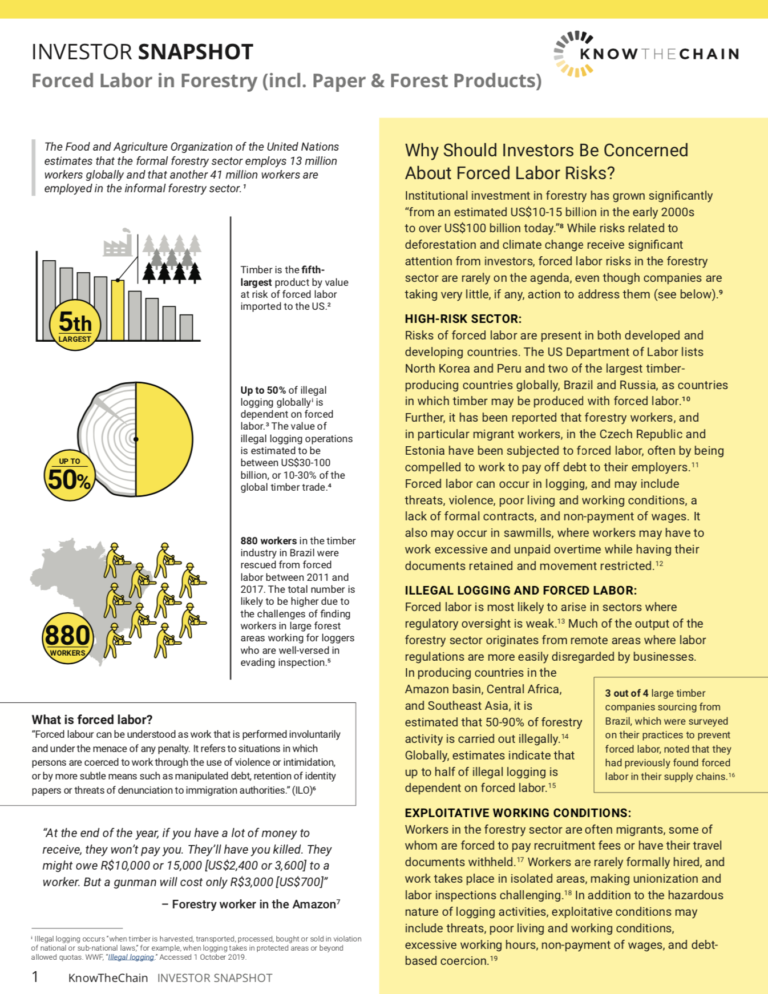It is estimated that 13 million workers are employed in the formal forestry sector while another 41 million workers are employed in the informal forestry sector. Much of this work takes place in remote areas where there is a lack of regulatory oversight and where unionization is challenging. In addition to the hazards inherent in logging activities, workers in the sector face exploitative conditions including threats, poor living and working conditions, excessive or unpaid working hours and debt-based coercion. Migrant workers are particularly vulnerable to exploitation as a result of the payment of illegal recruitment fees and related travel or living costs, and having travel documents withheld.
Despite the link between climate degradation and labour rights abuses, exemplified by the destruction of the Amazon as regulatory frameworks continue to break down, the investor focus in this sector has tended to center on deforestation and climate change with companies’ failure to address forced labour risks being left off the agenda.
KnowTheChain’s investor snapshot provides guidance for investors on forced labour risks in the sector, the steps being taken by companies to address these risks, and what actions investors can take. It assesses 39 of the largest publicly listed companies on their efforts to address forced labour risks in their supply chains, revealing a lack of action being taken by companies to address forced labour in this sector.

